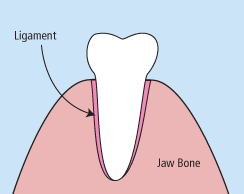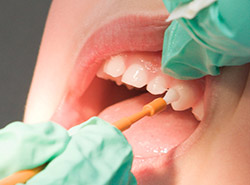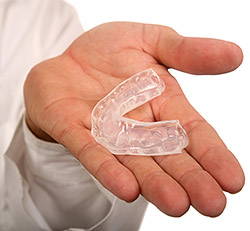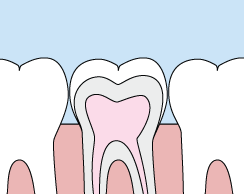Common Procedures
Topics on this page

Regular Exams and Cleanings
Regular exams are an important part of maintaining your child's oral health. During your child's regular exam, we will:
- Check for any problems that may not be seen or felt
- Look for cavities or any other signs of tooth decay
- Inspect the teeth and gums for gingivitis and signs of periodontal disease
- Perform a thorough teeth cleaning
Your child's exam will take between 15 and 45 minutes depending on their age and dental needs. Each regular exam includes a detailed teeth cleaning, in which we will clean, polish, and rinse the teeth to remove any tartar and plaque that have built up on the tooth's surface. Radiographs (X-rays) are only obtained when needed.
Visiting our office every six months gives you the chance to talk to the doctor about any questions you may have about your child's oral health. Regular exams are offered by appointment only, so please contact our practice today to schedule your child's next dental exam and teeth cleaning.
Extractions
 There are times when it is necessary to remove a tooth. Sometimes a baby tooth has misshapen or long roots that prevent it from falling out as it should, and the tooth must be removed to make way for the permanent tooth to erupt. This most frequently occurs to teeth in front - the permanent teeth erupt behind the baby teeth. At other times, a tooth may have so much decay that it is no longer restorable, so the doctor may recommend its removal. Infection, orthodontic correction, or problems with a wisdom tooth can also require removal of a tooth.
There are times when it is necessary to remove a tooth. Sometimes a baby tooth has misshapen or long roots that prevent it from falling out as it should, and the tooth must be removed to make way for the permanent tooth to erupt. This most frequently occurs to teeth in front - the permanent teeth erupt behind the baby teeth. At other times, a tooth may have so much decay that it is no longer restorable, so the doctor may recommend its removal. Infection, orthodontic correction, or problems with a wisdom tooth can also require removal of a tooth.
When it is determined that a tooth needs to be removed, Dr. Shelton may extract the tooth during a regular checkup or may request another visit for this procedure. While this procedure is typically very quick, it is important to share with the doctor any concerns or preferences for sedation to keep your child comfortable.
Fillings

For "baby teeth" that require restorations we offer several options including composite (tooth colored) fillings, stainless steel crowns (silver), or zirconia crowns (white). We do not offer amalgam or silver fillings at this office.
Fluoride
 Fluoride is effective in preventing cavities and tooth decay and in preventing plaque from building up and hardening on the tooth’s surface. A fluoride treatment in a dentist’s office takes just a few minutes. After the treatment, your child may be asked not to rinse, eat, or drink for at least 30 minutes in order to allow the teeth to absorb the fluoride. Depending on your child's oral health or the doctor’s recommendation, a fluoride treatment may be required every three, six, or 12 months. Please let us know if you have any concerns regarding fluoride treatment.
Fluoride is effective in preventing cavities and tooth decay and in preventing plaque from building up and hardening on the tooth’s surface. A fluoride treatment in a dentist’s office takes just a few minutes. After the treatment, your child may be asked not to rinse, eat, or drink for at least 30 minutes in order to allow the teeth to absorb the fluoride. Depending on your child's oral health or the doctor’s recommendation, a fluoride treatment may be required every three, six, or 12 months. Please let us know if you have any concerns regarding fluoride treatment.
Mouthguards
 Whether your child wears braces or not, protecting his or her smile while playing sports is essential. Mouthguards help protect the teeth and gums from injury. If your child participates in any kind of full-contact sport, the American Dental Association recommends that he or she wear a mouthguard. Choosing the right mouthguard is essential. There are three basic types of mouthguards: the pre-made mouthguard, the “boil-and-bite” fitted mouthguard, and a custom-made mouthguard from the dentist. When you choose a mouthguard, be sure to pick one that is tear-resistant, comfortable and well-fitted for your mouth, easy to keep clean, and does not prevent your child from breathing properly. Your dentist can show your child how to wear a mouthguard properly and how to choose the right mouthguard to protect his or her smile.
Whether your child wears braces or not, protecting his or her smile while playing sports is essential. Mouthguards help protect the teeth and gums from injury. If your child participates in any kind of full-contact sport, the American Dental Association recommends that he or she wear a mouthguard. Choosing the right mouthguard is essential. There are three basic types of mouthguards: the pre-made mouthguard, the “boil-and-bite” fitted mouthguard, and a custom-made mouthguard from the dentist. When you choose a mouthguard, be sure to pick one that is tear-resistant, comfortable and well-fitted for your mouth, easy to keep clean, and does not prevent your child from breathing properly. Your dentist can show your child how to wear a mouthguard properly and how to choose the right mouthguard to protect his or her smile.
Nightguards

Many parents often note that their child grinds their teeth at night. This is a condition called bruxism. Many people do not even know that they grind their teeth, as it often occurs when one is sleeping. In children, bruxism usually does not cause pain or discomfort. While it can wear down the primary "baby" teeth - it does not cause pain. Most children will grow out of this habit.
If your child continues to grind their teeth or we see wear or damage to the permanent teeth, then we would recommended a night guard. Nightguards are an easy way to prevent the wear and damage that teeth-grinding causes over time to permanent "adult" teeth. Custom-made by a dentist from soft material to fit the teeth, a nightguard is inserted over your child's top or bottom arch and prevents contact with the opposing teeth.
Sealants
 Sometimes brushing is not enough, especially when it comes to those hard-to-reach spots in your child's mouth. It is difficult for a toothbrush to get in between the small cracks and grooves on your child's teeth. If left alone, those tiny areas can develop tooth decay. Sealants give your child's teeth extra protection against decay and help prevent cavities.
Sometimes brushing is not enough, especially when it comes to those hard-to-reach spots in your child's mouth. It is difficult for a toothbrush to get in between the small cracks and grooves on your child's teeth. If left alone, those tiny areas can develop tooth decay. Sealants give your child's teeth extra protection against decay and help prevent cavities.
Dental sealants are a plastic resin that bonds and hardens in the deep grooves on your child's tooth’s surface. When a tooth is sealed, the tiny grooves become smooth and are less likely to harbor plaque. With sealants, brushing your child's teeth becomes easier and more effective against tooth decay.
Sealants are typically applied to children’s teeth as a preventive measure against tooth decay after the permanent teeth have erupted. It is more common to seal “permanent” teeth rather than “baby” teeth, but every patient has unique needs, and your child's dentist will recommend sealants on a case-by-case basis.
Sealants last from three to five years, but it is fairly common to see adults with sealants still intact from their childhood.


 Website Powered by Sesame 24-7™
Website Powered by Sesame 24-7™